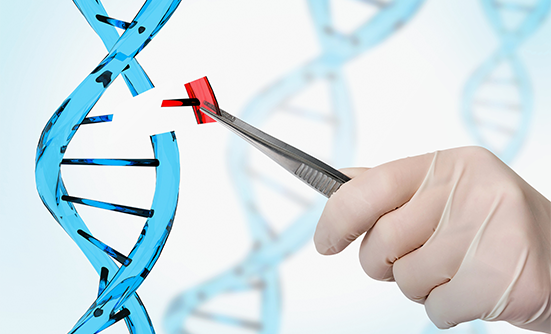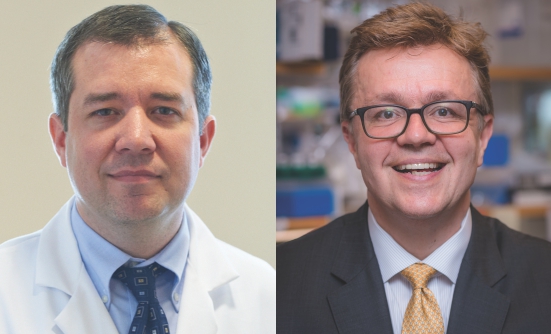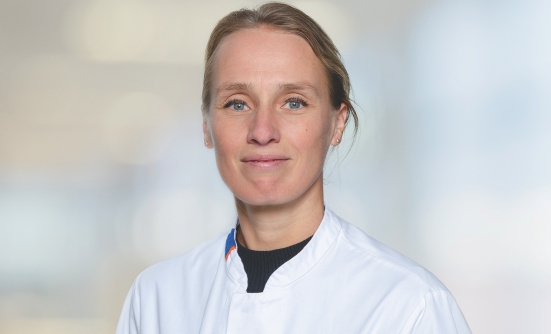You are not alone if you don’t know the difference between cancer genetics and genomics; these terms are often used interchangeably, but they refer to different things, although both terms relate to genes that are involved in cancer. According to the National Cancer Institute, “cancer is a genetic disease.”1
Cancer involves many factors and can behave in different ways in different people, depending on the relationship between the person’s genes, general lifestyle, and exposure to environmental chemicals or substances.
According to genetic counseling expert Jennifer R. Klemp, PhD, MPH, Associate Professor of Medicine, Division of Clinical Oncology, and Director, Cancer Survivorship, University of Kansas Cancer Center, Kansas City, knowing how all these factors influence cancer can help you to answer the following questions:
- What is my risk for having cancer, and what type?
- If I have cancer, what type of “biomarkers” and “genetic” or “genomic” tests will I need to have?
- How will these test results influence my treatment recommendations and potential response to therapy?
- How long will I have to use cancer treatments?
You might have heard about the human genome, which can be described as a complete set of instructions that is composed of your DNA, the way your body is built. Your DNA is like an inside picture of your body, and it includes additional information that can change or enhance your genetic profile.
Each cell in your body has 23 pairs of chromosomes: you inherited 1 set of chromosomes from each of your biologic parents—1 from your mom and 1 from your dad. In addition, each cell has thousands of genes, and these make up the genome that carries the “instructions” for everything that happens in your body. So how do these genes affect cancer?
“Cancer is a group of diseases caused by changes in DNA that alter cell behavior, causing uncontrollable growth and malignancy,” according to the National Cancer Institute. “These abnormalities can take many forms, including DNA mutations, rearrangements, deletions, amplifications, and the addition or removal of chemical marks. These changes can cause cells to produce abnormal amounts of particular proteins or make misshapen proteins that do not work as they should. Oftentimes, a combination of several genomic alterations work together to promote cancer.”2
Cancer Genetics: Hereditary Mutations
Cancer genetics is the science of genes you inherited from your mother or your father, and this can include the possibility of inheriting certain genetic mutations (changes) in 1 or more genes, according to Dr. Klemp. This is the type of genetic mutation you inherited from one of your parents that can influence your risk for a certain type of cancer.
Perhaps the best known inherited mutations are BRCA1 and BRCA2, which may be associated with a risk for breast or ovarian cancer, and HNPCC (hereditary nonpolyposis colorectal cancer), which may be linked to the risk of colon or endometrial cancer.
Knowing your personal and family history of cancer is the first step in determining if genetic testing is appropriate for you, according to Dr. Klemp.
In fact, in March 2018, the FDA approved the first-ever direct-to-consumer genetic test. This test can detect 3 types of genetic (inherited) BRCA mutations. However, having this type of inherited mutation does not always mean you are at risk for cancer.
Therefore, it is recommended that before you order this genetic test, you should ask your doctor or care team about it. A cancer genetics expert is needed to counsel and advise each person about his or her individual risk for cancer. Except for this new test, all other genetic tests are ordered by a genetics expert or a physician.
Somatic Mutations
The second type of gene mutations include mutations that are not inherited from family members but develop over time, because of changes in a certain gene that can cause the cells in that gene to grow out of control (for reasons that are not fully understood). This can lead to the development of a new tumor or can make an existing tumor grow faster.
These gene changes are called “somatic mutations,” which are often also referred to as “biomarkers” (biologic markers), and we all acquire such changes in our genes over time. Some of these mutations are harmless, and some will increase the risk for having different diseases, including cancer.
Although thousands of mutations exist, researchers have only identified the role of some somatic mutations in specific cancers. Examples of somatic mutations include HER2 in breast or ovarian cancer; KRAS and dMMR in colorectal cancer; and EGFR, ALK, ROS1, MET, and BRAF mutations in non–small-cell lung cancer (NSCLC). Many of these mutations are involved in different types of cancer, and new ones are being discovered all the time.
Other somatic mutations or DNA rearrangements involved in other types of cancer have more recently been identified, such as FLT3, KIT, and IDH2 in acute myeloid leukemia (AML).
Once a cancer occurs, genomic profiling or genetic testing is used to find if any hereditary or somatic gene mutations are involved. Many new tests are now available to help doctors identify these mutations, and when they are identified, this helps to determine which patients would benefit from a specific treatment.
Many treatments have been developed in the past decade specifically for patients with one type of these mutations. These treatments are called “targeted therapies,” because each of these treatments targets a specific mutation (or biomarker), and they have been developed with the intention to destroy that mutation and stop the development of the cancer cells associated with it.
Cancer Genomics
Cancer genomics is the science of the genes in our body. Mutations in these genes can either be inherited or somatic. Cancer genomics tries to explain how these genes express themselves (how they affect the body), or how they act within their environment. If the mutated cells in the gene continue to grow, they can develop into cancer.
“Genetic testing” now mainly refers to testing for inherited gene mutations, whereas “genomic or molecular testing,” also known as “molecular profiling,” refers mainly to testing for somatic mutations. However, as noted earlier, these terms are often used interchangeably by doctors and by other people.
A molecular test can determine if the tumor has any somatic mutations, and if found, the specific type of mutation will indicate which targeted therapy, if available, is best for that patient.
Cancer continues to change with time, as its cells or their composition change within the tumor. Cancer genomics looks for gene changes that influence cancer development, growth, and response to therapy. Because of these changes, the tumor will in many cases eventually stop responding to the therapy, and another therapy will then be used, if available. These cellular changes in the tumor also influence the type and duration of therapy that is recommended for the patient.
Molecular or genomic testing should now be given to all patients with a cancer that involves mutations or other DNA changes or tumor biomarkers that have been identified as targets for those targeted treatments; some examples include patients with NSCLC, bladder cancer, or AML.
Ask about Your Molecular Profile
Cancer genetics and genomics have changed the landscape of cancer care and are becoming very important for decision-making in the care of the individual patient, where the focus is increasingly becoming on personalizing the treatment to the specific patient. Therefore, understanding how your genes may influence your risk for cancer, or how they can determine the best treatment for you, is clearly very important.
It is also important to remember that patients who receive targeted therapies based on their molecular profile will have less exposure to unhelpful treatments, which can be very toxic and still not help to treat the specific type of cancer or mutation.
Using drugs that may not be beneficial for your cancer potentially exposes you to unnecessary side effects, as well as adds to the cost of care, so knowing your individual molecular profile can spare you unnecessary harm while also saving money.
The field of genetics and genomics is growing fast, so if there is a history of cancer in your family, or if you have been diagnosed with cancer, have a conversation with your cancer care team about how your genes affect your care, what are the best treatment options for you, and why.
References
1. National Cancer Institute. The genetics of cancer. Updated October 12, 2017. www.cancer.gov/about-cancer/causes-prevention/genetics.
2. National Cancer Institute. Cancer genomics overview. Updated May 3, 2017. www.cancer.gov/about-nci/organization/ccg/cancer-genomics-overview.
Patient Resources
American Cancer Societywww.cancer.org/cancer/cancer-causes/genetics.html
National Cancer Institute
www.cancer.gov/about-nci/organization/ccg/cancer-genomics-overview
National Human Genome Research
www.genome.gov/19016904/faq-about-genetic-and-genomic-science
The Cancer Genome Atlas
cancergenome.nih.gov















